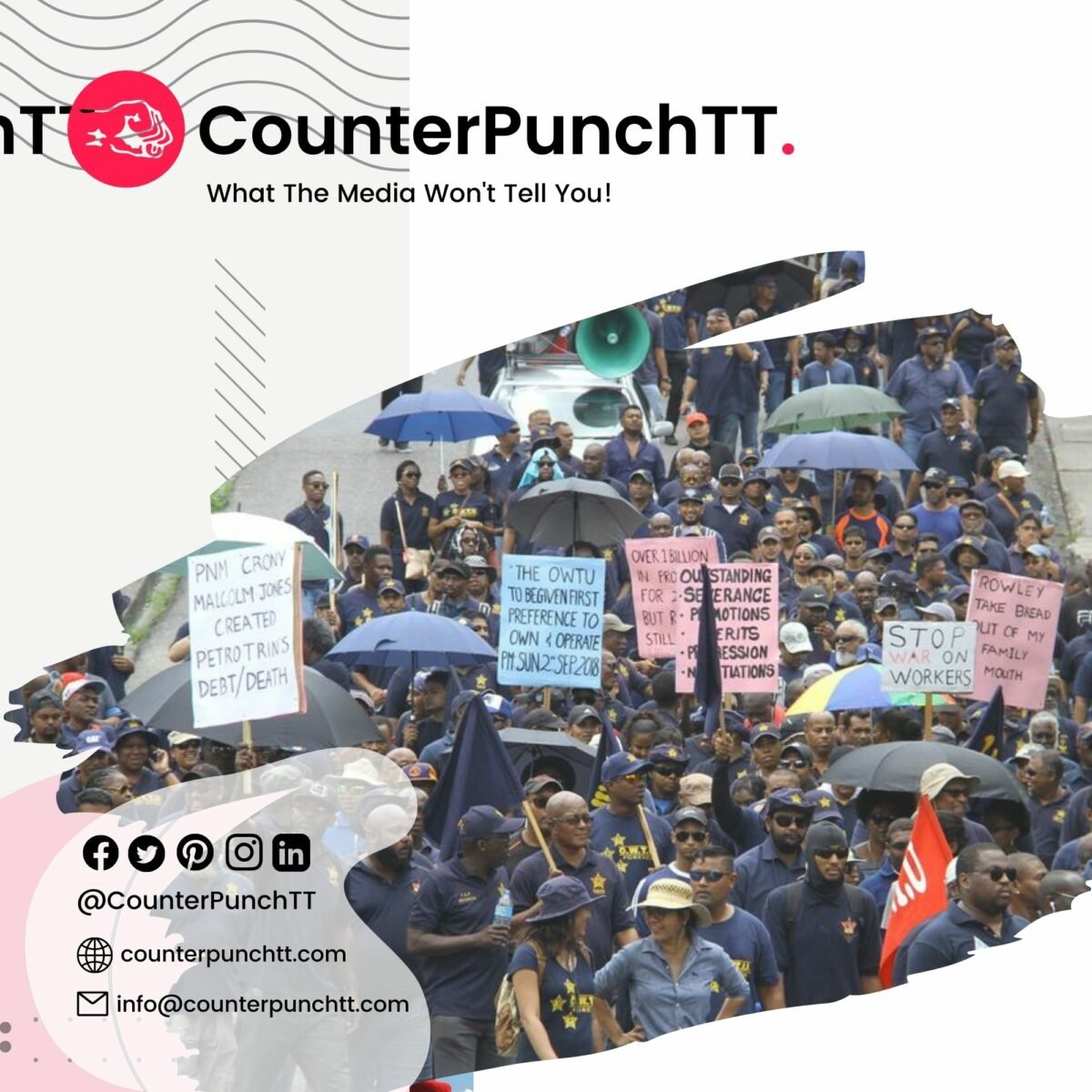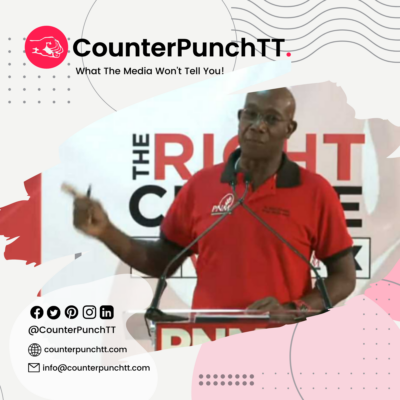… or, RIP Labour
MARCH 18 is another anniversary of the most brutal assault on the local working masses in modern history.
Scores of police officers – including baton-wielding new recruits – savagely attacked workers as they launched a public march for “Peace, Bread and Justice” that Tuesday 1975 morning.
Militant trade unionists of the era, George Weekes, Basdeo Panday, Raffique Shah, Joe Young, Clive Nunez, and other radicals, had inspired a United Labour Front, with an earlier rally at Skinner Park, San Fernando of an estimated 25,000 workers.
In a historic development, Weekes, strongman of Oilfields Workers’ Trade Union, Panday, the sugar workers’ leader, and Shah, head of the cane farming community, had mobilised and united the labouring masses.
Weekes led an unrelenting struggle for nationalisation of the oil sector, demanding that multinational Texaco, which ran the Pointe-a-Pierre operations, “must go.”
Panday sparked lightning sugar belt strikes for improved wages and working conditions for the 10,000 who toiled the fields for as little as 25 cents a day.
The 1975 warrior spirit had built on the 1970 Black Power revolution, a vigorous campaign for empowerment of the masses.
The worker harmony disturbed maximum leader Dr. Eric Williams, who had earlier touted one of his political achievements as keeping oil and sugar workers apart, a coded declaration about holding national power by dividing the races.
Police boss Tony May, clearly acting on political instructions, refused permission for the march, to begin outside of OWTU’s Paramount Building, which was then a hotbed for worker agitation.
Weekes, with a mixture of his dry wit and combative spirit, intoned: “March comes before May.”
So, thousands of determined workers gathered to be greeted by an armed contingent of police officers.
The offensive was supervised by senior officers Randolph Burroughs, who would later be propelled to police commissioner, and Denis Ramdwar.
As soon as workers locked armed and began marching and singing grassroots anthems, police officers unleashed terror.
Protestors were cruelly beaten, a pregnant woman was assaulted, pots of soup were overturned and the entire demonstration dismantled.
Scores of protestors, including Weekes and Panday, were manhandled and arrested; Shah scaled a fence and escaped.
An enduring image is that of Weekes being hauled away by a menacing-looking policeman with a long gun at his side.
As a young journalist, I scurried back to the newspaper office, but some colleagues were roughed up and their rolls of film seized.
The day of infamy has since been appropriately labelled “Bloody Tuesday.”
Arrested workers and their leaders were convicted in court weeks later.
In the defiant manner that would become his trade mark, Panday opted for a few nights in jail before allowing his union to cough up his bail.
The aborted protest had two poignant messages.
One was the dogged drive and leadership capacity of trade unionists of the era.
The other was the reckless ease with which the authorities brutalised workers who were merely clamouring for a better day.
Compare that with what exists today.
Joblessness and under-employment are at the worst levels in 40 years, and at least one-third of the working class cannot make ends meet and are malnourished.
A generation after Weekes struggled for Pointe-a-Pierre, it is being reduced to a heap of rust, much like Point Lisas Industrial Estate.
But the labour “movement” is silent.
The cost of food has gone up by an average of 60 per cent over the past four years alone, with purchasing power at an all-time low as a result of a virtual wage freeze.
Labour is muted.
The quality of life has been weakened by ceaseless crime, deterioration of the public health sector, lower educational standards and crumbling public institutions.
Still, trade unions are unmoved.
There is the continuing collapse of small businesses and destruction of the middle class, while large corporations are pulling down more profits.
In other words, the rich is getting richer, and the poor – you get it!
Commercial banks are recording their largest earnings in history while small operatives are struggling with loans, overdrafts and punishing charges.
And still, unions are dead in the world, only waiting to be told RIP.
That distressing state of affairs a mere generation after “Bloody Tuesday”!




